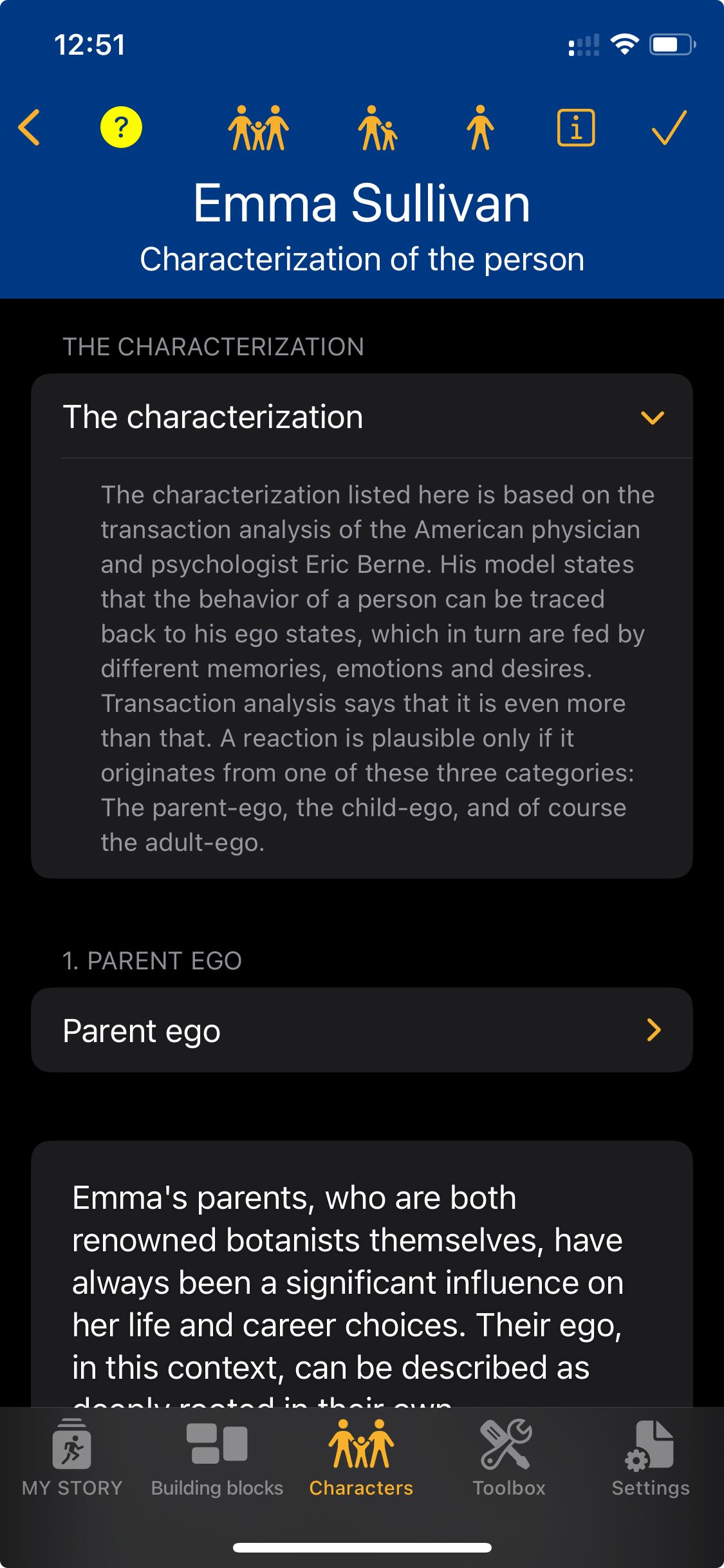Characterization
Transactional Analysis in Character Development
The characterization approach described here is based on
Transactional Analysis
by the American psychiatrist and psychologist Eric Berne. His model suggests that a person's behavior can be traced back to three
Ego states: Parent, Child, and Adult, each influenced by distinct memories, emotions, and desires.
- Parental Ego: This reflects the internalization of parental figures. It involves imitating their behaviors and taking them as role models, both consciously and unconsciously. Understanding a character's parental influences is crucial for crafting believable reactions.
- Child Ego: This represents the preserved internal child of a person, influencing actions occasionally, with varying degrees of presence among individuals.
- Adult Ego: The adult ego is characterized by objective, thoughtful, and respectful behavior, representing mature adult actions.
Assigning Character Traits
To assign character traits, click on the icons for Parent, Child, or Adult at the top of the page, or select the specific area where you want to add traits.
Available Character Traits
StoryIt Go offers an extensive library of character traits, categorized into
- Emotional Aspects,
- Mental Abilities,
- Spiritual Orientation,
- State of Mind,
- Moral Orientation,
- Personal Dynamics,
- Self-Consciousness, and
- Social Aspects.
Upon selecting a trait, its opposite will also be displayed for contrast.
Removing Character Traits
To remove character traits, edit the respective area by clicking on the Parent, Child, or Adult symbols at the top of the page, then press the red minus symbol next to the trait.

